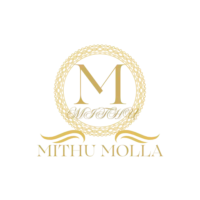Advance On-Page SEO Service | Mithu Molla
What is On-Page SEO in Simple Terms?


What is On-Page SEO?
Why is On-Page SEO Important?

Core Components of On-Page SEO
Title Tag Optimization
Your title tag is like your storefront sign. If it doesn’t catch attention, people won’t come in. That’s why optimizing your title with the right keywords and making it compelling is crucial.
Here’s what makes a great title tag:
Length: Between 50–60 characters
Include target keyword (e.g., “advance on page SEO service”)
Use power words: “Expert,” “Best,” “Guide,” “2025,” etc.
Avoid duplication
For example:
“Expert On-Page SEO Services – Rank Higher in 2025 | Get a Free Audit”
That tells users exactly what they’ll get and entices them to click.
Meta Description Writing
Meta descriptions don’t directly influence rankings, but they’re vital for CTR. It’s the snippet users see on search results. A good one convinces users to click.
How to write a killer meta description:
150–160 characters
Use action words: “Discover,” “Learn,” “Boost”
Include your main keyword
Make it match the content on the page
For example:
“Get expert on-page SEO services tailored for 2025. Improve rankings, boost site speed, and enhance UX with our advanced strategies.”
F.A.Q.
Lorem ipsum dolor sit amet.
Great question. Here’s a simple breakdown:
| Feature | Basic On-Page SEO | Advanced On-Page SEO |
|---|---|---|
| Keyword Placement | ✔️ | ✔️ |
| Meta Tags | ✔️ | ✔️ |
| Header Tags | ✔️ | ✔️ |
| Image Optimization | ❌ | ✔️ |
| Content Structuring | ❌ | ✔️ |
| Schema Markup | ❌ | ✔️ |
| Page Speed Optimization | ❌ | ✔️ |
| Mobile Responsiveness Review | ❌ | ✔️ |
| Internal Linking Strategy | ❌ | ✔️ |
| SEO Audit Report | ❌ | ✔️ |
So if you’re serious about growth, investing in advanced on-page SEO service offers a higher return with long-lasting impact.
Yoast, Rank Math, SEMrush, Ahrefs, and Google Search Console are great choices.
Typically within 2–4 weeks for small changes; major improvements may take 1–3 months.
Avoid keyword stuffing, duplicate content, slow load speeds, and broken links.
It’s essential but works best with off-page SEO and quality backlinks.
